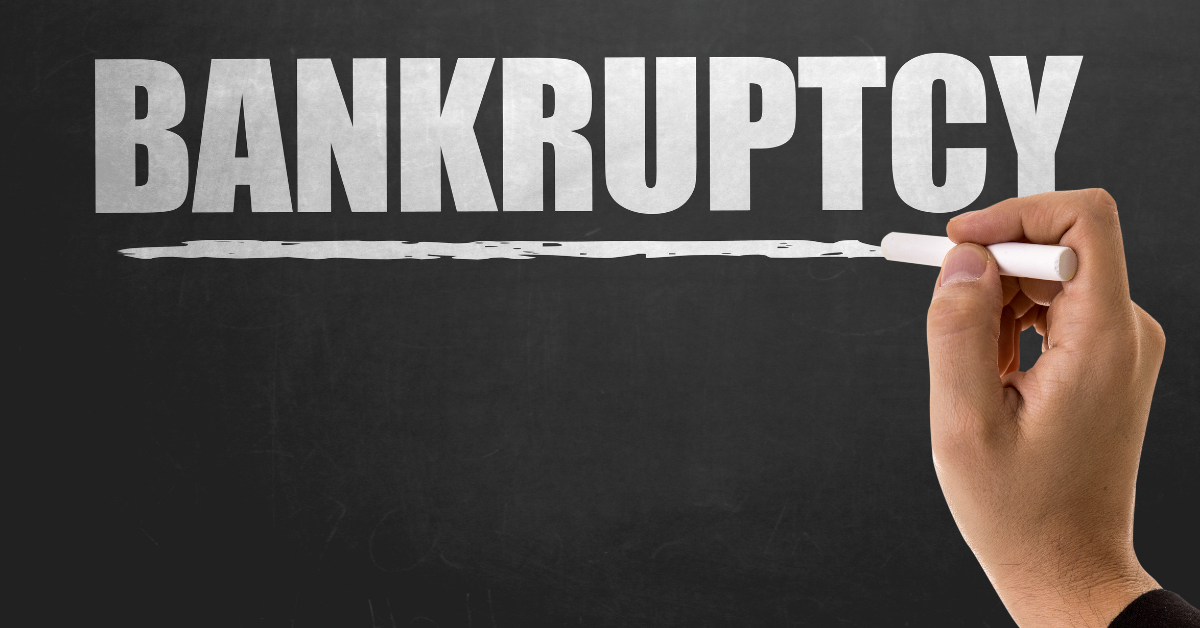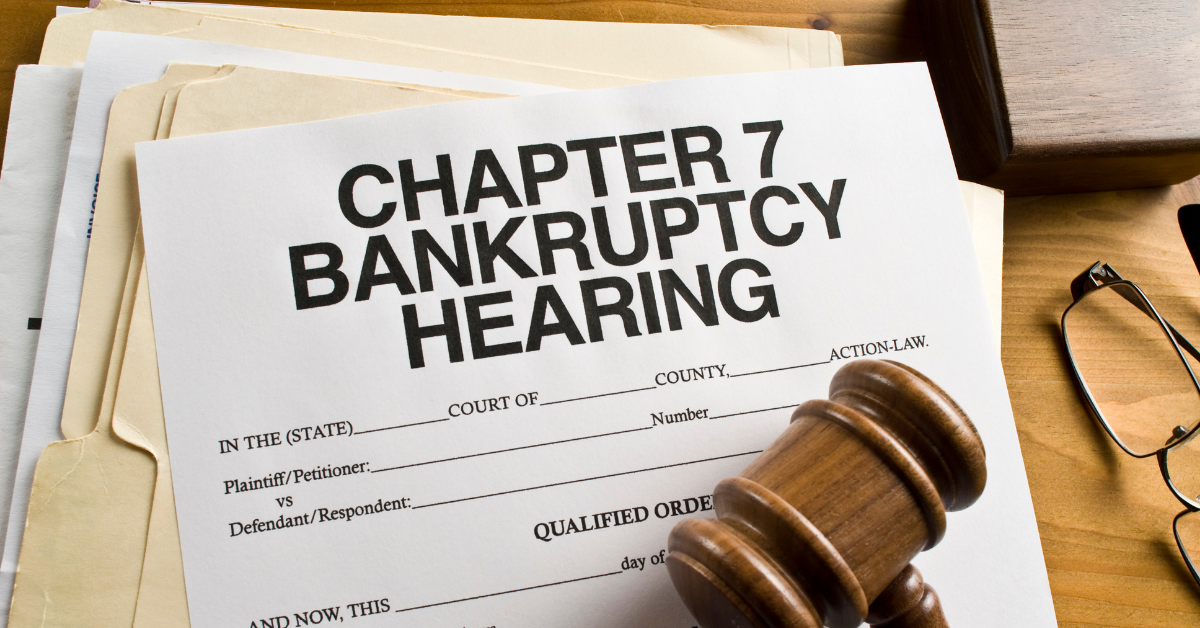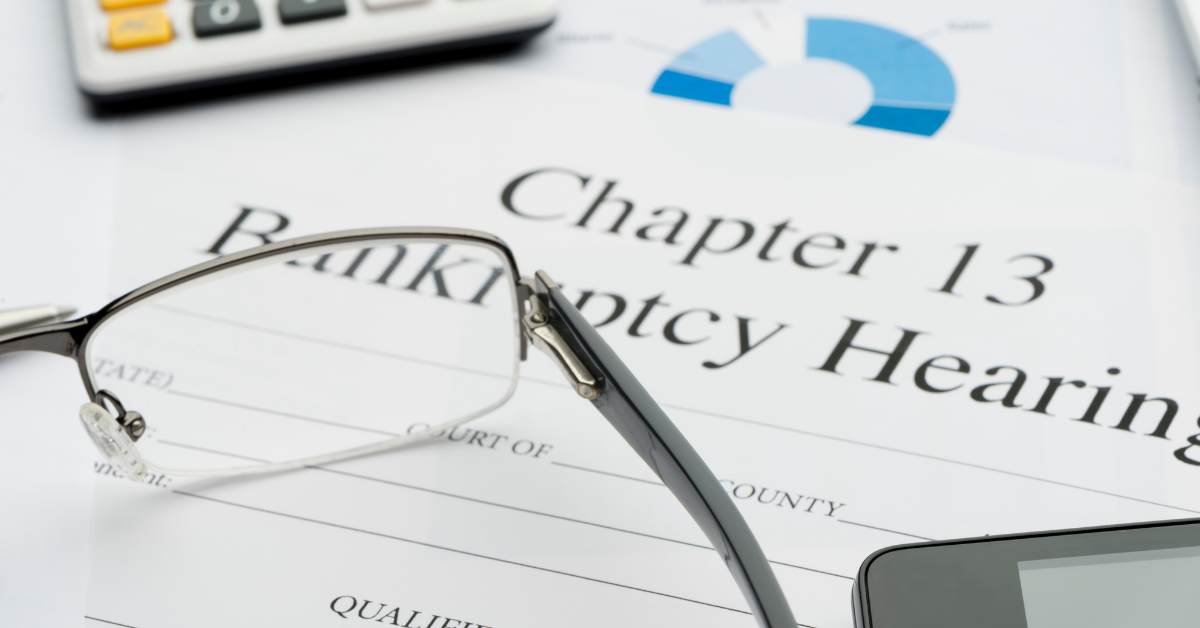Dealing with debt can be overwhelming and stressful, especially when it feels like there’s no end in sight. If you’re struggling with debt and considering bankruptcy, you might be wondering: how much debt is worth filing for bankruptcy? The answer can vary depending on your individual circumstances, but this guide will tell you what to consider when deciding if bankruptcy is the right option for you.
How Much Debt is Worth Filing Bankruptcy: Factors to Consider

When considering whether or not to file for bankruptcy, weigh the pros and cons and understand the potential consequences of your decision. Here are some things to consider when determining if bankruptcy is the right choice for your situation:
The Type of Debt You Have
Not all debts are created equal, and some types may be more manageable than others. For example, student loans and tax debts are generally nondischargeable debts in bankruptcy, meaning that filing for bankruptcy for these may not provide the relief you’re seeking. On the other hand, credit card debt, medical bills, and personal loans can often be discharged through bankruptcy, making it a more attractive option for those struggling with these types of debts.
Your Income and Expenses
The ability to repay your debts will also play a significant role in determining whether bankruptcy is the right choice for you. If you have sufficient income to cover your living expenses and make reasonable payments towards your debts, bankruptcy may not be necessary. However, if your income will not cover your basic needs and service your debts, filing for bankruptcy may make sense.
The Impact on Your Credit
Filing for bankruptcy will have a negative impact on your credit, but it’s important to remember that this is not permanent. Over time, your credit score can recover, especially if you follow the correct recommendations for rebuilding your credit. Additionally, if your debts are already causing significant damage to your credit, filing for bankruptcy may be the best way to start fresh and begin the process of rebuilding your financial health.
Minimum Debt Amount
There is no minimum debt amount required to file bankruptcy. However, consider whether the financial stress and potential consequences of filing for bankruptcy outweigh the benefits of becoming debt-free. If you have a small amount of debt that can be managed through other debt-relief options, such as debt settlement or debt consolidation, bankruptcy may not be the best choice.
The Cost of Bankruptcy
Bankruptcy is not free, and there are costs associated with filing, such as court fees and attorney fees. You’ll want to weigh these costs against the potential benefits of filing for bankruptcy. If the cost of bankruptcy is significantly less than the amount of debt you would be able to discharge, it may be worth considering.
Understanding the Different Types of Bankruptcy

There are different types of bankruptcy available to individuals and businesses, each with its own set of requirements and bankruptcy benefits. The most common types of bankruptcy for individuals are Chapter 7 and Chapter 13, while businesses often file for Chapter 11.
Chapter 7 Bankruptcy
Chapter 7 bankruptcy is also known as liquidation bankruptcy and it is designed for individuals with limited income who are unable to repay their debts. In a Chapter 7 bankruptcy, non-exempt assets are sold to repay creditors, and any remaining dischargeable debts are wiped clean, providing a fresh start for the debtor.
Chapter 13 Bankruptcy
Chapter 13 bankruptcy, also known as reorganization bankruptcy, is designed for individuals with a steady income who can repay a portion of their debts over time. In a Chapter 13 bankruptcy, the debtor proposes a repayment plan that typically lasts three to five years, during which they make payments towards their debts. At the end of the repayment period, any remaining dischargeable debts may be discharged.
Chapter 11 Bankruptcy
Chapter 11 bankruptcy is primarily for businesses seeking to reorganize their debts while continuing operations. This type of bankruptcy allows businesses to restructure their debts, renegotiate contracts and leases, and implement a plan to repay creditors over time. Chapter 11 can be a strategic option for businesses facing financial difficulties and can help preserve jobs and maintain relationships with suppliers and customers.
The Role of a Bankruptcy Attorney in Your Decision

When considering filing for bankruptcy, it’s essential to consult with an experienced bankruptcy attorney who can help you evaluate your options and make the best decision for your situation. A bankruptcy attorney can:
Assess Your Financial Situation: An attorney can help you take a comprehensive look at your financial situation, including your income, expenses, assets, and debts. They can help you determine whether bankruptcy is the right option for you or if there are alternative debt relief solutions that may be more appropriate.
Explain the Bankruptcy Process: Bankruptcy can be a complex and confusing process, and an attorney can help you understand the steps involved, the different types of bankruptcy available, and the potential consequences of filing. They can also help you navigate the legal requirements and paperwork involved in filing for bankruptcy.
Develop a Bankruptcy Strategy: A bankruptcy attorney can help you develop a strategy for your bankruptcy case, including identifying which type of bankruptcy is best suited for your situation and helping you create a repayment plan if necessary. They can also help you identify any potential pitfalls or challenges in your case and develop strategies to address them.
Represent You in Court: If you decide to file for bankruptcy, your attorney will represent you in court and advocate for your best interests throughout the process. They will help ensure that your rights are protected and that you receive the best possible outcome in your case.
How Bankruptcy Can Help with Different Types of Debt

Bankruptcy can provide relief for various types of debt, but it’s essential to understand how each type of debt is affected by bankruptcy. Here are some common types of debt and how bankruptcy can help:
Credit Card Debt
Credit card debt is typically unsecured debt, which means that it can be discharged in bankruptcy. Chapter 7 bankruptcy can eliminate most, if not all, of your credit card debt, while Chapter 13 bankruptcy allows you to repay a portion of your credit card debt through a repayment plan.
Medical Debt
Medical debt is another form of unsecured debt that can be discharged in bankruptcy. Both Chapter 7 and Chapter 13 bankruptcy can help you eliminate or reduce your medical debt, providing relief from the financial burden of mounting medical bills.
Mortgage Debt
If you’re struggling to make your mortgage payments, bankruptcy may provide a solution. Chapter 13 bankruptcy allows you to catch up on your missed mortgage payments through a repayment plan, potentially allowing you to keep your home. However, if you cannot afford your mortgage even with a repayment plan, Chapter 7 bankruptcy may provide a way to surrender your home and eliminate the mortgage debt.
Student Loan Debt
Student loan debt is generally not dischargeable in bankruptcy, but there are some exceptions. You may be able to discharge your student loan debt in bankruptcy if you can prove that repaying the debt would cause an undue hardship. This is a challenging standard to meet, and it’s essential to consult with a bankruptcy attorney to determine if this option is available to you.
Tax Debt
Certain tax debts can be discharged in bankruptcy, but the rules are complex. Generally, income tax debt may be dischargeable if it meets specific criteria, such as being at least three years old and having been assessed at least 240 days before filing for bankruptcy. It’s crucial to consult with a bankruptcy attorney to determine if your tax debt can be discharged in bankruptcy.
How Bankruptcy Can Affect Your Assets

When determining how much debt is worth filing for bankruptcy, it’s important to know how your assets may be affected. The impact on your assets will depend on the type of bankruptcy you file and your specific financial situation.
Chapter 7 Bankruptcy

In a Chapter 7 bankruptcy, some of your assets may be sold to repay your creditors. However, certain assets are considered exempt and will not be sold. Exempt assets may include your primary residence, a modest car, and personal belongings (such as clothing and household items). A bankruptcy attorney can tell you which of your assets may be exempt and which may be at risk. If you have secured debt, like a car loan or mortgage, you may be able to keep these assets if you continue making payments on them.
Chapter 13 Bankruptcy

In a Chapter 13 bankruptcy, you generally keep your assets while repaying your debts through a payment plan. However, if you have non-exempt assets, you must pay either your disposable income or an amount equal to the value of those assets, whichever is greater. So, while you get to keep your nonexempt assets, you may required to pay more through your repayment plan. An experienced bankruptcy attorney can evaluate your assets and develop a repayment plan that meets your needs and protects your assets.
When considering how much debt is worth filing for bankruptcy, it’s important to take into account the potential impact on your assets. If you have significant unsecured debts, such as credit card debt, medical bills, or personal loans, bankruptcy may be a viable option for eliminating them. However, if your primary debts are secured debts, such as a mortgage or car loan, you may need to explore other debt-relief options -like debt settlement or debt consolidation to protect your assets.
Ultimately, the decision to file for bankruptcy should be based on a thorough analysis of your financial situation, including your income, expenses, and the type and amount of debt you have. Consulting with a bankruptcy attorney can help you determine if bankruptcy is the right solution for your specific circumstances and help you navigate the complex federal bankruptcy laws and bankruptcy court process.
Preparing for Life After Bankruptcy

While bankruptcy can provide relief from debt and a fresh start, it’s essential to prepare for life after bankruptcy to ensure lasting financial success. Here are some steps you can take to rebuild your financial future:
Create a Budget
Develop a realistic budget that accounts for your income and expenses, and stick to it. A budget can help you manage your finances, save for emergencies, and avoid falling back into debt.
Establish an Emergency Fund
Having an emergency fund can provide a financial safety net in case of unexpected expenses or emergencies. Aim to save at least three to six months’ worth of living expenses in a separate savings account.
Rebuild Your Credit
Bankruptcy will have an impact on your credit, but it’s not permanent. By making timely payments on any remaining debts and avoiding new debt, you can gradually rebuild your credit over time. Consider using secured credit cards or credit-builder loans to demonstrate responsible credit use.
Stay Informed and Seek Financial Education
Stay informed about your financial situation and continue to educate yourself on personal finance and credit management. Consider attending workshops, reading books, or consulting with a financial advisor to learn more about managing your finances and avoiding future financial difficulties.
How Much Debt is Worth Filing Bankruptcy: Frequently Asked Questions

What is the minimum amount of debt required to file for bankruptcy?
There is no specific minimum debt requirement for filing for bankruptcy. The decision to file depends on your unique financial situation, the type of debt you have, and your ability to repay the debt. It’s important to consult with an experienced bankruptcy attorney to determine if bankruptcy is the right option for you.
Can I keep my home and car if I file for bankruptcy?
In many cases, you may be able to keep your home and car when filing for bankruptcy, depending on the type of bankruptcy you file and the equity you have in these assets. In Chapter 13 bankruptcy, you can keep your assets while repaying your debts through a repayment plan. When you file a Chapter 7 bankruptcy, you may be able to keep your home and car if they are protected by exemptions and you continue making payments on any secured debts.
Will bankruptcy eliminate all of my debts?
While bankruptcy can help eliminate many types of unsecured debts, such as credit card debt and medical bills, there are certain debts that generally cannot be discharged in bankruptcy. These include most student loans, child support, alimony, and certain tax debts. It’s important to discuss your specific debts with a bankruptcy attorney to determine which debts may be discharged in your case.
How long will bankruptcy stay on my credit report?
A Chapter 7 bankruptcy will typically remain on your credit report for 10 years, while a Chapter 13 bankruptcy will remain on your credit report for 7 years. However, the impact of bankruptcy on your credit score can begin to decrease over time, especially if you take steps to rebuild your credit after filing.
How can I rebuild my credit after bankruptcy?
There are several wise steps you can take to take after bankruptcy, including creating a budget, establishing an emergency fund, and using credit responsibly. To rebuild your credit, you may consider applying for a secured credit card or taking out a small installment loan to demonstrate responsible credit use. It’s important to monitor your credit report and make timely payments on all of your debts to help improve your credit score over time.
Can I file for bankruptcy more than once?
Yes, you can file for bankruptcy more than once. However, there are time limits between each bankruptcy filing. You must wait eight years after a previous Chapter 7 discharge to file for Chapter 7 again, and two years after a previous Chapter 13 discharge to file for Chapter 13 again. If you previously received a Chapter 7 discharge, you must wait four years before filing for Chapter 13, and if you previously received a Chapter 13 discharge, you must wait six years before filing for Chapter 7.
Contact Us to Learn More About Your Bankruptcy Options

If you’re considering bankruptcy and want to know more about how much debt is worth filing for bankruptcy, we’re here to help. Our experienced bankruptcy attorneys at LSS Law can guide you through the process and help you make the best decision for your financial future. Contact us today to schedule a no-cost Bankruptcy Strategy Session by calling (954) 466-0541 or visiting our contact page.






